Uneven Access to Toilets
Living in one of China’s major cities, it’s easy to take certain goods and services for granted. Every street has at least one convenience store, a bank, a major café chain, and a public restroom. So long as you stay in the city, you can access all your basic necessities – money, food, clean water, and flushable toilets.
It’s difficult to imagine, then, that this is not the case for almost 25% of Chinese towns and villages. In a previous blog post, we provided some data about China’s public sanitation problem, but let’s jog your memory.
According to the World Health Organization, 86.6% of China’s urban residents had access to clean water and restrooms in 2015. This percentage exceeds the national average by 10%, and the rural average by over 20%.
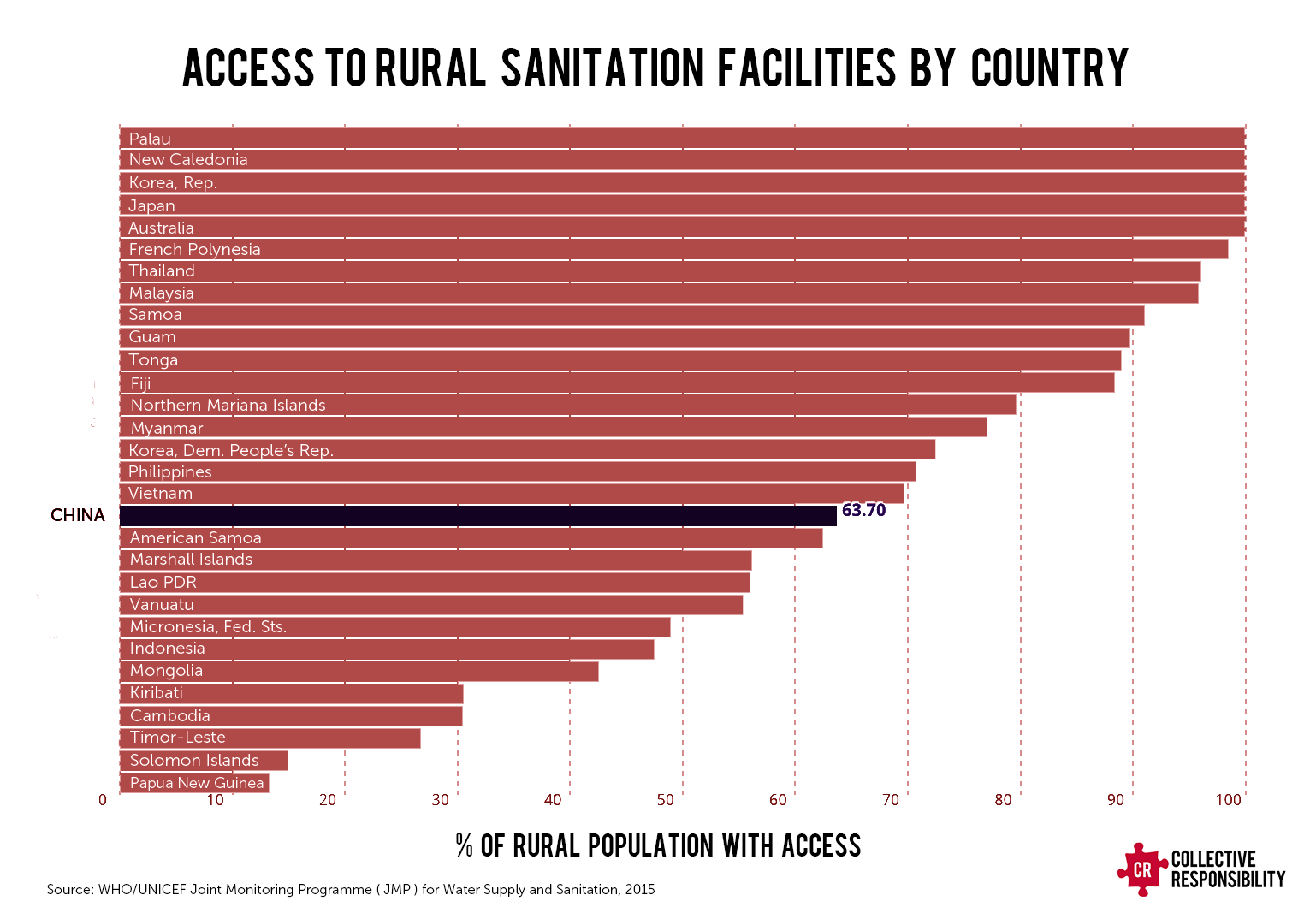
When we look at this staggering gap, though, it can be misleading. China’s problem is not just a rural one, but as Collective Responsibility’s Will Morris points out, an intra-city one. “Nearly 400,000 migrant students attend primary school in Shanghai and many of their classrooms lack flushable toilets,” he said. Instead, some students use waste baskets or pots – not exactly clean or sustainable alternatives.
Kohler Hackathon Takes Off
So how do we bridge these gaps? How do we address migrant schools and rural villages, where public infrastructure does not accommodate flushable toilets? Kohler has taken the first step. On Saturday, Kohler and Collective Responsibility hosted an official training session for the upcoming “Design a Toilet Hackathon.” On November 18-19, university teams from Shanghai Jiaotong, Fudan, Tongji, NYU Shanghai, Xian Jiaotong – Liverpool, East China University of Science and Technology, and the University of Science and Technology in China will help develop a disconnected toilet. In under 24 hours, each of the teams will design a model, present their research and ideas, and compete for the best concept.
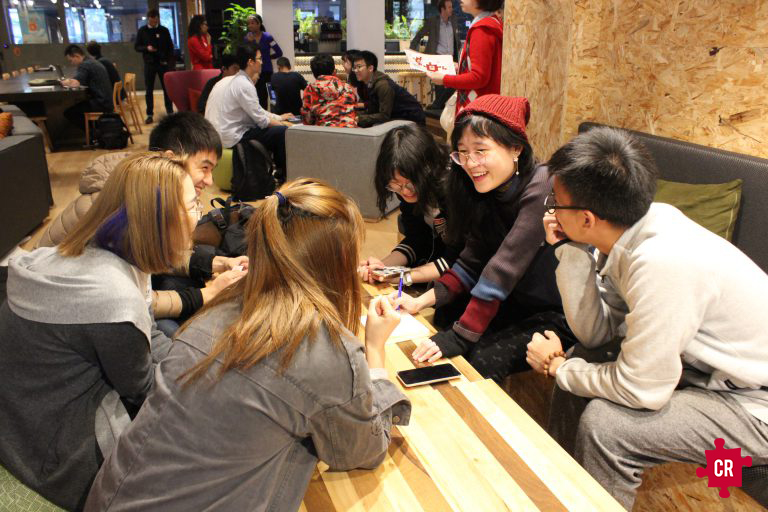
Designing for User Experience
The challenge isn’t just about engineering and modeling, though. According to Rich Brubaker, Collective Responsibility’s founder, a good product must have a clear user in mind and in some way address China’s sanitation gap. “We want to bring the map up to 90-95% coverage,” he said, “because everybody should have access to public sanitation.”
Will Morris clarified this point during his introduction to design, pointing to three elements of effective product design – function, aesthetics, and experience – but heavily emphasized the last. “You have to understand who your users are, and really identify their pain points.”
He challenged students to do more than just desk research.
“Go out and ask people about their toilets and public restrooms. Ask them what they like and don’t like about their toilets – what could be better.”
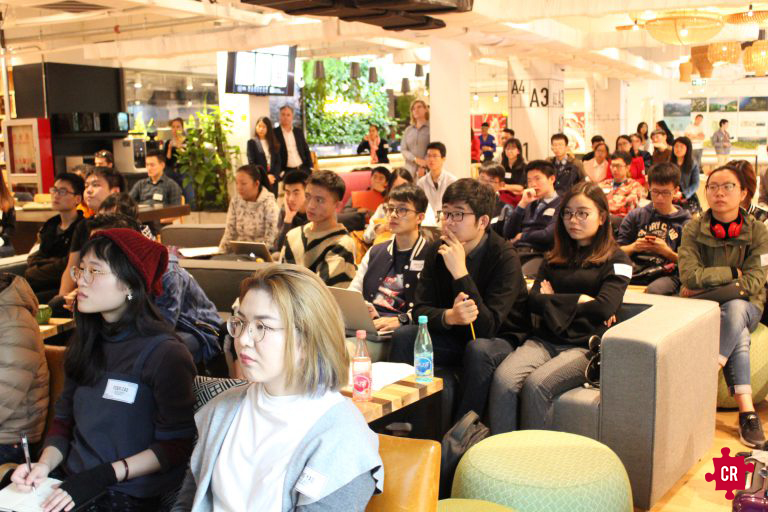
Saurabh Datta, design technologist at Frog, echoed many of these sentiments. “You can invent and innovate as much as you want … but the context is really important, and the best way to get it is through immersion. You have to go out and actually empower people in the community with your design.”
He pointed to Frog’s Collective Action Toolkit – a guide to design, product inspiration, and user engagement – as a model for students. Frog used the toolkit during a partnership with Nike in Africa, and according to Saurabh, it really helped them connect with potential users. “One of the toolkit’s major steps involves going out and talking. We met so many young people, saw places where we could develop new designs and build off of existing tech… It was an incredible part of the design journey.”
This message to design for the user was one of the event’s strongest points – and each speaker touched on it in a different way. Jean Gong, senior manager of Kohler K&B Asia Pacific, stressed that user experience and access to clean water, air, and sanitation are at the core of Kohler’s mission.
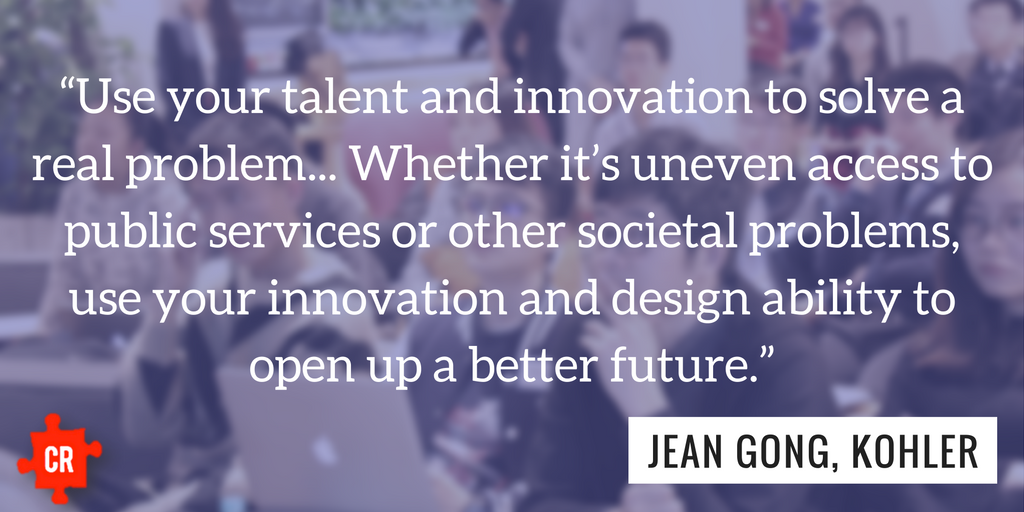
Design: Asking the Right Questions
The event’s final speaker – Renjie Liu – offered a different perspective. Compared to the others, he related most closely to students, and talked about his journey from mechanical engineer, to product designer, to founder of his own company: P.X.K.P.
He gave students a small, seemingly easy case study about how to protect yourself from bees, and asked them a series of design-based questions. During the simulation, he purposed changed the research question, and with the change in question came totally different answers from students. “How did we come up with potential solutions this time?” he asked, and one of the students answered immediately: “We changed the question!”
Renjie stressed this point: “Yes. We came up with a better solution – that I stick a pumpkin over my head – only after we changed the question… If you cannot find the solution to a problem, adjust it. That’s the best thing I can tell you. Designing isn’t just about finding a solution to one question.”
With that piece of advice in mind, students met for the first time with their mentors, and started preparing for the challenge. The mentors came from a range of different design, engineering, and product development firms, including Frog, WeCare WC, Kohler, and THNK – School of Creative Leadership.
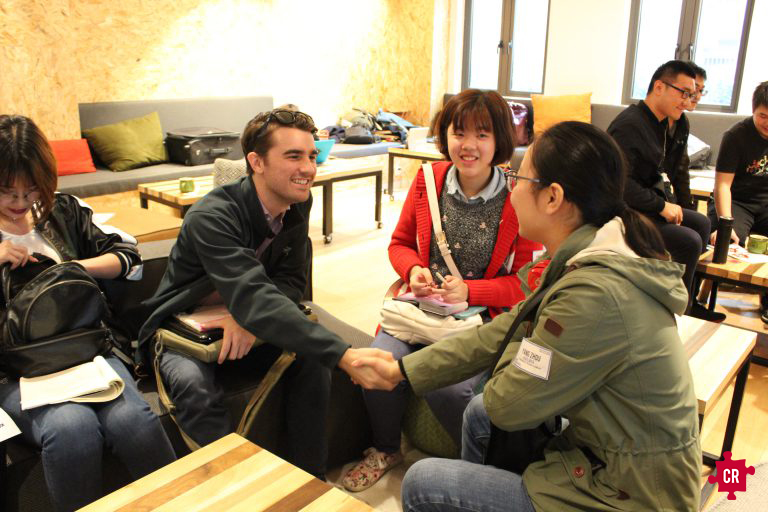
The Kohler Design a Toilet Hackathon is only two weeks away. To find out more about the event and delve into China’s public sanitation issues, check out some of our recent blog articles and follow us on social media to receive updates.
This event recap was written by Alison Schonberg, Research Analyst at Collective Responsibility.
